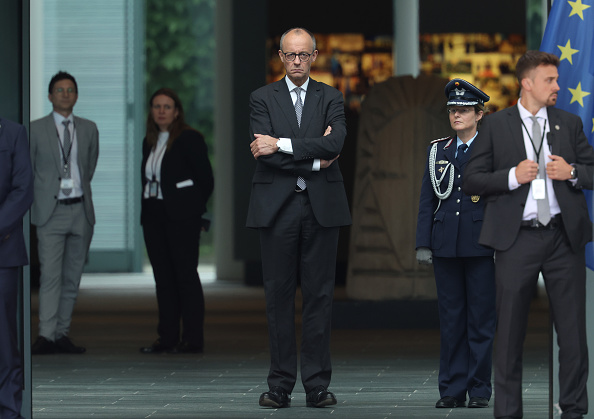German economy stalls as Merz’s black-red coalition marks 100 days with falling support
Economic woes are mounting in Germany as support for the Grand Coalition collapses.
Germany is facing a wave of bankruptcies, rising unemployment, and public fears of renewed inflation, with fresh data casting doubt on the economic course of Chancellor Friedrich Merz’s black-red coalition.
According to Welt, the Federal Statistical Office has recorded a sharp rise in insolvencies in the early second half of the year, while the number of unemployed is nearing 3 million. Consumer confidence remains deeply negative, with many households cutting back on spending and businesses across the country closing their doors.
Expectations for an economic turnaround under Merz and Vice Chancellor Lars Klingbeil have faded, particularly among small and medium-sized businesses. Analysts warn that the chance of Europe’s largest economy emerging from half a decade of stagnation in 2025 is close to zero. Even large-scale, debt-financed infrastructure and defense investments are expected to provide only limited respite, with Welt noting that deep structural reforms, including reduced bureaucracy, lower energy costs, and cuts to labor taxes, are needed to restore competitiveness.
Instead, critics say the coalition is adding more red tape. Federal Labor Minister Bärbel Bas’s “tariff compliance law” will require public contract bidders to follow existing wage agreements and prove it bureaucratically. Promised electricity tax cuts have been applied only to industry, while other businesses and consumers continue paying higher rates. A newly introduced super-depreciation scheme for investments is unlikely to overcome what Welt describes as “disadvantageous location conditions,” keeping domestic investment subdued.
Compounding the outlook, U.S. President Donald Trump’s new tariff measures are expected to hit German exports hard. Merz has warned that the impact could be significant and called for urgent adjustments to the coalition’s economic program to prevent further business closures.
Similarly, new INSA polling for the Bild tabloid shows political support for the coalition has eroded sharply just 100 days into its term. The CDU/CSU stands at 27 percent, down from 28.6 percent in February’s election, while the SPD remains stagnant at 15 percent. Together, the partners reach only 42 percent, short of the 44 percent needed for a parliamentary majority. The AfD is close behind the CDU/CSU at 25 percent.
Public dissatisfaction is also high: 60 percent say they are unhappy with the government’s work, more than double the 27 percent who are satisfied.
Source: Remix News




